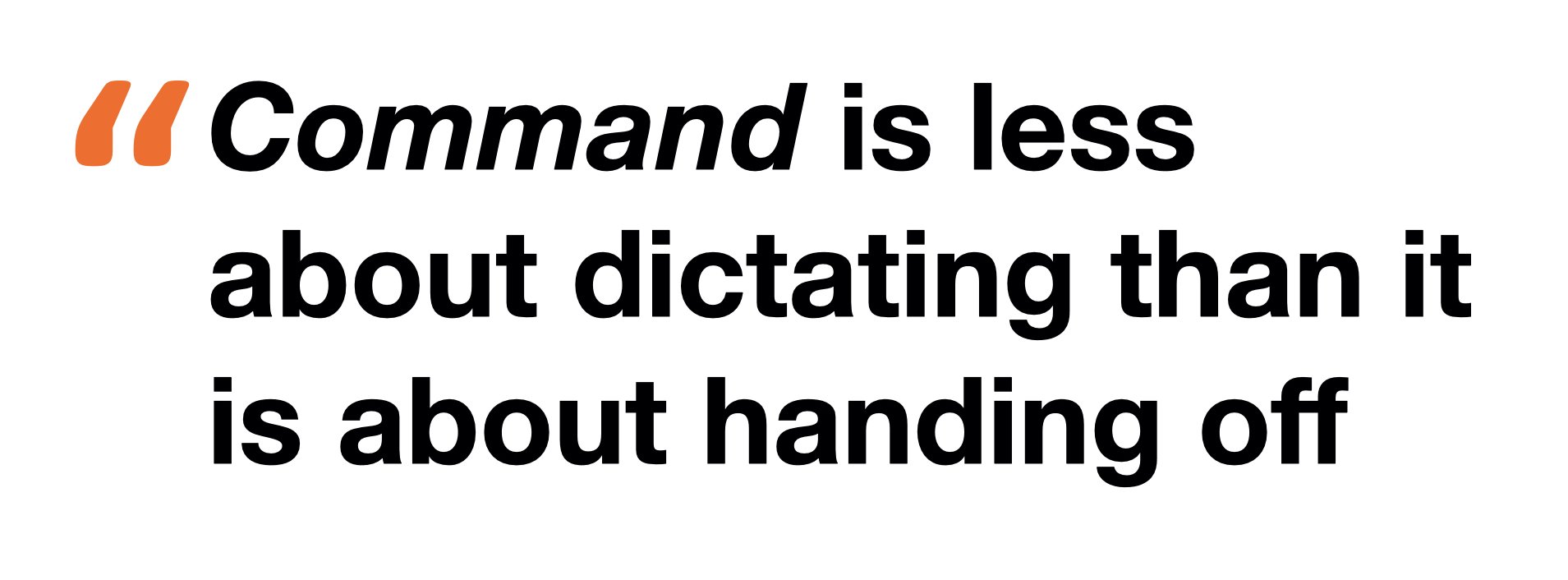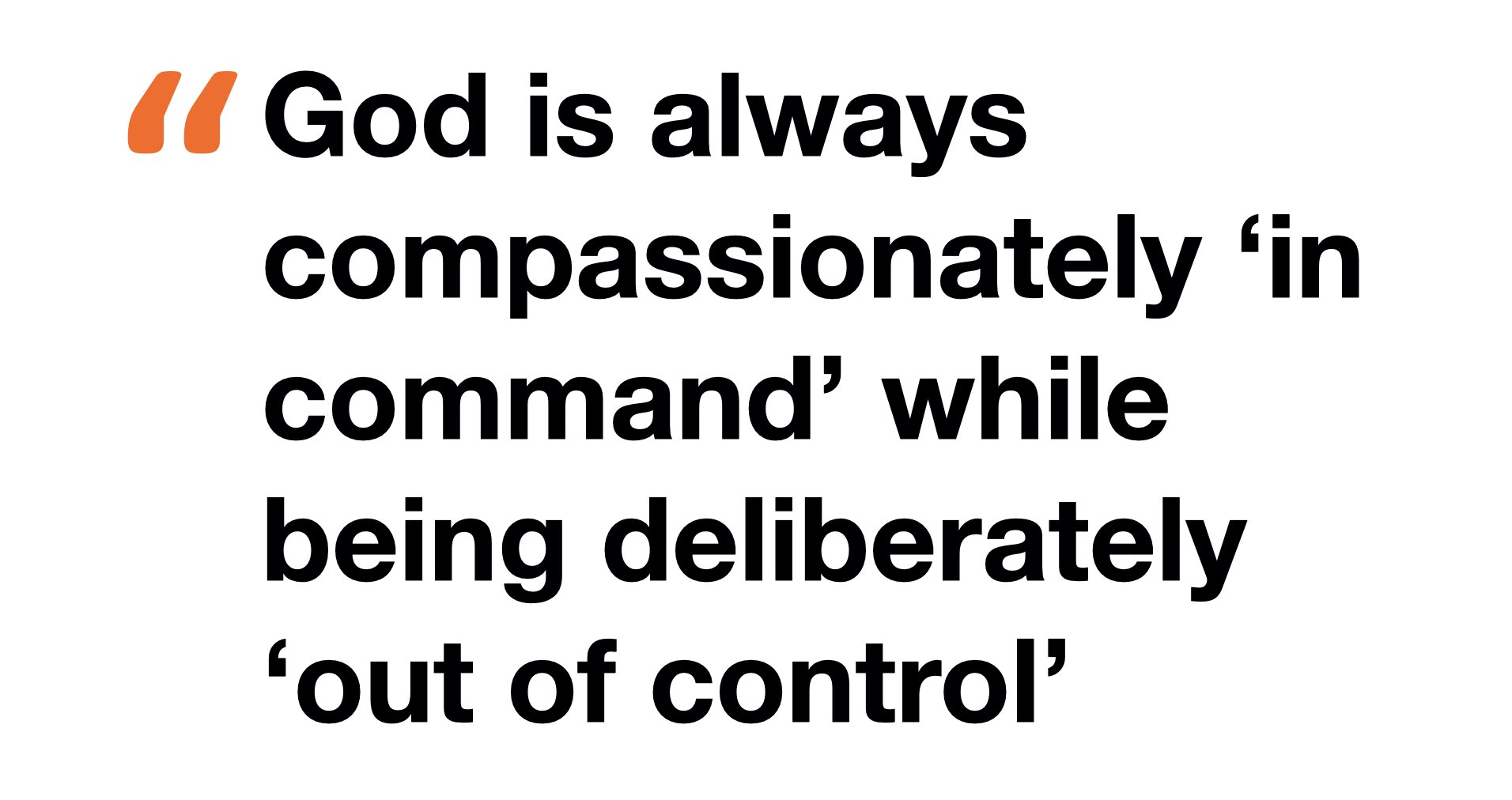Word of Wisdom: Command
“I can no longer obey; I have tasted command, and I cannot give it up.”
Napoleon Bonaparte
Many of us have a complicated relationship with the concept of command. We can at once desire its power while fearing its responsibility. We can receive it from others if it advances our self-interest while rejecting it if it chafes against our self-importance. Some of our hearts have been crushed by it, and some have ruthlessly acquired it so as to never be crushed again.
But what if our conception of command is flawed?
Mine certainly was, and the discovery launched a journey into fields of goodness that has influenced every area of life.
From an early age, we begin receiving messages communicating to us that command—as commonly understood—is a measure of masculine worth. We’re told explicitly and implicitly through thousands of small signals that being “in command”, having a “commanding presence”, and “commanding a room” are marks of prominence and worthy of praise.
Such an understanding easily breeds a sense that life is a zero-sum game, hardening our hearts and focusing our energy (read: fears) on overshadowing if not subjugating those around us. To command, we come to believe, is to dominate. It is to control our environment and, more importantly, the people within it.
We want a “command-and-control” experience. But command and control, it turns out, are two very different things.
This revelation occurred when I happened upon a copy of the U.S. Army Ranger Handbook. I was won over immediately by the publication’s clear, concise, yet comprehensive treatment of leadership in just a few pages, and in the midst of those few, short pages was this paradigm-shifting gem: “Control restricts command.”
Say what?
For a civilian especially, this statement is nonsensical. The phrase “command-and-control” is commonly understood to be one, unified concept, and the meaning fairly well-accepted to be a top-down, hierarchical, rigorously ordered system that, if you happen to be in one, can be boiled down to this: “do what you’re told.”
But command and control are not one thing; they are, surprisingly, two distinct modes of operating.
The Ranger Handbook explains that “the predominance of command” means that there is “an emphasis on command, rather than control; this emphasis provides initiative, the acceptance of risk, and the rapid seizure of opportunities on the battlefield.” Stop there: who does it provide for? Not the comfort and ego of the one “in command”; it provides initiative and opportunity to the subordinate officer receiving the command.
Command, therefore, is not about being obeyed unquestioningly, but about setting up others to successfully find answers. It’s not about constraining others’ decisions and actions, but broadening their ability to decide and act.
This is borne out by the word itself. The term command comes from a Latin root meaning “to entrust,” and more specifically, “to give out of one’s hand.” To command is less about dictating than it is about handing off.
That’s in contradiction with control, which, as we’ve explored previously, means literally “to roll against” people and things around us in order to limit them…and protect ourself. It is difficult to both give out of your hand to someone and roll against them at the same time, or, as the Ranger Handbook puts it: “The challenge to leaders is to provide the minimal amount of control.”
Thankfully, we’re not left to our own devices in exercising what the Handbook refers to as “the personal element of command”. We have a role model we can look to: the Holy One himself.
Though so often misperceived as a controlling killjoy in the sky, God instead is the originator of the personal element of command: a creator, a redeemer, a father, a friend who doesn’t roll against his sons and daughters, but entrusts to them his vision, his purpose, his words (the Hebrew for “commands”). Thus, we have “the Ten Commandments” entrusted to us, not “the Ten Thousand Quality Controls” rolling against us and reining in all possible missteps.
Because he’s not afraid of the missteps, of mistakes and messiness. You see, “the personal element of command” entails not only a preliminary handing off of the mission, but a personal involvement in its carrying out, even when things go sideways. Like a commanding officer in combat, he steps in; he provides clarity and courage; he is with us.
It could be stated this way: that God is always compassionately “in command” while being deliberately “out of control”. While that might be jarring to us at first, the record seems to be clear. From the garden onward, mistakes, rebellions, disobedience and disorder have been the norm, all things that a Heavenly Controller could easily have prevented.
But one who commands (not controls) the earth responds differently: always redeeming, always stepping in lovingly to the chaos of the valley of shadow, never too early nor too late. It is not without personal cost, but that is the sacrificial nature of “the personal element of command.”
We, too, are called to this sacrificial command, not superficial control. We’re anointed to give out of our hand, to entrust and empower those around us, and step in to redeem when the fog of war rolls in.
We walk in this command when we speak words of life and wisdom. When we help pick up the pieces. When we tenderly wipe the tears of beleaguered friends and family, and bear their burden. When we empathize with and empower our spouse. When we entrust our children with resources and equip them to make choices on the frontline, not in controlled environments we fabricate. And when the prodigal leaves and wastes it all, we prepare a new table.
That is the essence of command: not taking, not grasping and striving, but a continual giving out of one’s hand, of letting go to send others forward. It is handoffs, not handcuffs. It is open arms and unclenched hands, inviting into freedom.
It is accepting that Abba’s desire is for his sons to experience, as the Ranger Handbook puts it, “freedom of action for the leader to execute his mission…with knowledge of the commander’s intent”.
That is command. That is freedom. That is love. Too bad someone didn’t give General Bonaparte a copy of the Ranger Handbook.
“These things I command you, so that you will love one another.” John 15:17




